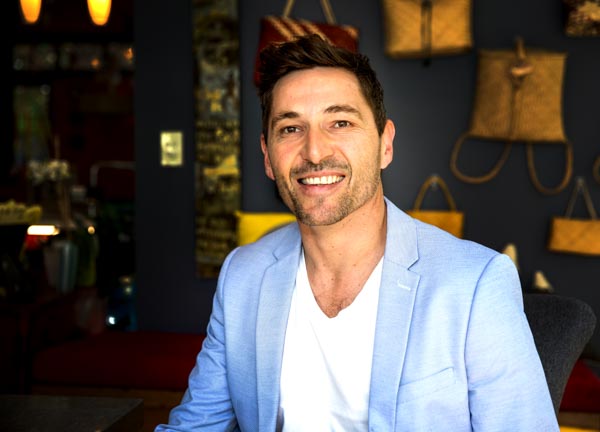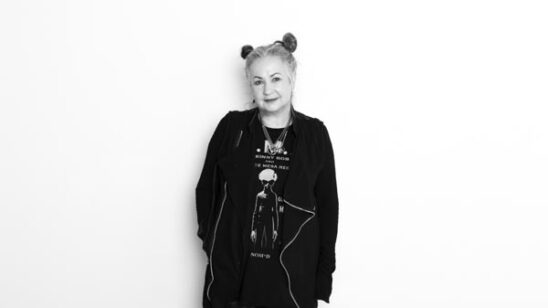
Child’s Play: The Secret Life of Girls
Forget lovingly dressing their dolls and maintaining organisation in the home. It seems that the little girls of today also seek to be the ‘Prime Minister of Auckland’, or the captain of their very own pirate ship. Rather than just sugar, spice and all things nice, they are equally competitive, ruthless and determined to win.

It’s all laid on the line in The Secret Life of Girls, a two-part TVNZ special, now available on TVNZ on Demand, which follows the play, conversations and fascinating challenges set for a group of five and six-year-old girls. The scene is this: a typical Kiwi kindergarten has been rigged up with cameras to track the girls as they interact with each other, directed at times by two teachers. Meanwhile, professional analysis is provided by Dr Annette Henderson and renowned neuroscience educator, Nathan Mikaere-Wallis, a child development specialist from Christchurch.
If you recognise the name or perhaps the face, Wallis is well known to audiences throughout Australia and New Zealand for his commentary on child development or, more specifically, how our early interactions with children play a critical role in defining their outcomes. He’s been a university lecturer, he’s made podcasts and documentaries, written books and he travels around the world giving talks on the developing brain and positive parenting. “I’ve always had a fascination with human beings,” he says. “We’re the most advanced thing in the multiverse and also the most complex. And I’ve always loved children.”
The Secret Life of Girls has been a particularly fulfilling experience he says and, although the feedback from viewers around the country was surprise over the competitive and even sometimes aggressive nature of the young girls on the show, Wallis wasn’t in the slightest.
Filmed to correspond with the 125th anniversary of giving women the right to vote, what the show has been most successful at is upending gender stereotypes.
There is a general perception that men are more practical, aggressive and risk-taking, while women are more emotional, cautious and better at multitasking. Perhaps that’s so, but how much of that behaviour is down to social conditioning? “Research indicates these behaviours are much more learned than we think,” he says, pointing to research that has been done on babies in blue and pink stretch and grows and how the adults whose charge they are under, treat babies dressed in the different colours quite differently, making it hard to separate nature from nurture.
“Clearly we (males and females) are different hormonally, but the concept has been oversold in the media. We have the same traits but in differing amounts. Rather than men coming from Mars and women from Venus, it’s like Mars and Venus crashed and overlapped.”
Rather than a binary male/female thing, Wallis says American Indians have long recognised seven types of gender and, in fact, now that we can read genes, we know there are many more variations than just the female (XX chromosomes) and male (XY chromosomes).
“I think it just shows we’re complex, us human beings. There’s a whole spectrum and we’re not necessarily at one end or another.”
So, how much of the temperament displayed on the playground will stick around to adulthood and will the little leaders of the show be the future Jacinda Arderns of the country? In short yes, but it depends on whether there are any other significant developments (such as trauma) in the child’s life.
While your personality can change, your temperament doesn’t. “Temperament plus experience equals personality,” Wallis says.
So, while those little playground divas are likely to remain leaders throughout their lifetimes, they are likely to become more refined in their approach to leadership through their life experiences. As an educator – plus a father and now a grandfather – Wallis has always held fast to the belief that the first 1,000 days of a child’s life are absolutely critical to wellbeing because, while they say ‘it takes a village to raise a child’, it’s preferable, he says, for the village to wrap around a dyadic, or ‘one on one’ relationship.
While many think young children learn their social skills by being put into a preschool environment early, in actual fact, focusing primarily on creating a secure relationship with one key caregiver is the best foundation on which to build social skills. “We should be doing everything we can to support kids staying at home.”
While he has a busy year ahead of him, including a trip to Saudi Arabia to teach academic staff about brain development alongside Harvard educators and a new documentary series for TVNZ, Wallis plans to continue doing his parenting /brain talk talks around the country. “We continue getting 1,000-1,500 people turning up. They want to be informed but not told what to do. I simply use the research to inform.”




